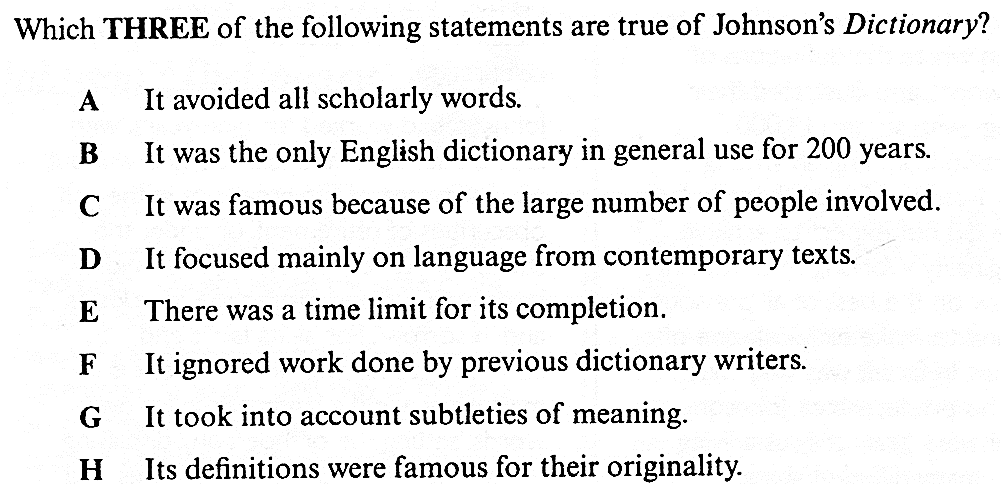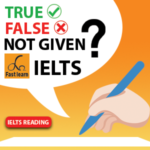CÂU HỎI TRẮC NGHIỆM– BÀI TẬP
Trắc nghiệm loại 2: chọn các ý được nói đến
Hãy đọc bài và trả lời các câu hỏi trắc nghiệm sau
Johnson was a poet and critic who raised common sense to the heights of genius. His approach to the problems that had worried writers throughout the late seventeenth and early eighteenth centuries was intensely practical. Up until his time, the task of producing a dictionary on such a large scale had seemed impossible without the establishment of an academy to make decisions about right and wrong usage Johnson decided he did not need an academy to settle arguments about language; he would write a dictionary himself; and he would do it single-handed. Johnson signed the contract for the Dictionary with the bookseller Robert Dosley at a breakfast held at the Golden Anchor Inn near Holbom Bar on 18 June 1764. He was to be paid £ 1.575 in instalments, and from this he took money to rent 17 Gough Square, in which he set up his ‘dictionary workshop’.
James Boswell, his biographer described the garret where Johnson worked as ‘fitted up like a counting house’ with a long desk running down the middle at which the copying clerks would work standing up. Johnson himself was stationed on a rickety chair at an ‘old crazy deal table’ surrounded by a chaos of borrowed books. He was also helped by six assistants, two of whom died whilst the Dictionary was still in preparation.
The work was immense; filling about eighty large notebooks (and without a library to hand). Johnson wrote the definitions of over 40,000 words, and illustrated their many meanings with some 14.000 quotations drawn from English writing on every subject, from the Elizabethans to his own time. He did not expect to achieve complete originality. Working to a deadline, he had to draw on the best of all previous dictionaries, and to make his work one of heroic synthesis. In fact it was very much more. Unlike his predecessors, Johnson treated English very practically, as a living language, with many different shades of meaning. He adopted his definitions on the principle of English common law – according to precedent. After its publication, his Dictionary was not seriously rivalled for over a century.
Questions 1-3

More multiple choice reading exercises










1 bình luận về “Câu hỏi trắc nghiệm trong IELTS reading – bài tập 2”